|
The first time you made me feel inferior was in 6th grade. You were the bouncy blonde who knew how to smile the smile well beyond your years. I was the girl with ill-fitting clothes, mousy brown hair, and a smile that said “child.” You walked the walk of the popular crowd while I sat in the corner with my book, sporting my butterfly clips. We could’ve been friends, despite our differences. At the very least, we could’ve just co-existed peacefully. You, however, had other plans. From my hair to my clothes to the freckles on my face, you made fun of every inch of me. You mocked me until I felt like maybe I was flawed. You got others on your bandwagon and worked hard to belittle me every chance you could. You pushed and shoved with your words, and insecurity crept in. Through the years, there were many versions of you. Your name, background, hair color, and voice were different. Sometimes we had one harsh encounter, and sometimes you stuck around for a while to make me feel small. Over the years, there were so many of you. I still know each of your names and remember the hurt you caused. To me, you were always a version of the girl from 6th grade. You made me feel weak. I learned that the message of being kind wasn’t always the way of the world. I learned that mean girls really did exist, and that sometimes the words of the mean girls really did sting. As I got older, I told myself I was tougher. I didn’t need to worry about what others thought. I didn’t need to be meek and walked all over. I started to grow confidence, and I started to talk back. I was never innocent, I realize now. I said and did some things I shouldn’t have. Even the bookworms put on Regina George’s heels from time to time, and that’s something I’m not proud of. Behind the brave face, though, was a hidden truth: Insecurity. Those pesky worries were always sitting really close to the confident smirk on my face at your harsh words. What if they were right? What if I wasn’t that special? What if I really was ugly, dumb, weird, and boring? What if I, like they made me believe, was a nobody? Mean Girls in AdulthoodIn high school, you think the scenes from Mean Girls are left behind when you graduate. The comments and antics of teenagers surely can’t cross the imaginary line into the adult world. However, I’ve come to realize that mean girls always exist at every stage of life. No matter how much you grow up, judgement and harsh comments still surround you. There will always be those willing to stomp on you with their stilettos to make themselves feel superior. That’s just the way life is. Working as a high school English teacher, I’m even more privy to the fact that cruelty and competition are cyclical in nature; they truly don’t just go away, and there really is no way to just let it all go. Harsh words really do haunt you, no matter how brave you try to be. Nonetheless, I’ve come to realize two very important lessons the 6th grade version of myself didn’t quite know. 1. No one is perfect or perfectly innocent. We all have our Regina George moments. We might go about it differently, but we’ve all judged another woman or been unnecessarily unkind. Thus, we must use our experiences, especially if we’ve been on the receiving end of cruel judgement, to inspire us to be kinder. We must strive to be more empathetic than our adversaries so we can stop the cycle. We must seek to build up others, even if they are seeking to tear us down. We must strive to combat the inner mean girl that tempts us to judge others, to be cruel, and to make others feel inferior. 2. Inferiority is a personal choice. In high school, it’s almost impossible to understand this. Even now, at 29, it’s not an easy concept to ascribe to. However, the older I get, the more I realize the truth in this statement. Mean girls are only effective if we let them be. Sure, the words will always haunt us. Cruel comments are indelible and don’t really dull with time. Still, it is our decision to believe them or to let them rest as untrue. We may not have the power to stop all of the real life mean girls in the world—but we have the power to choose how we handle their words. Real life mean girls will always exist. From time to time in life, we might even find ourselves as one of the clique. However, the true challenge we as women face is to rise above the tendency to compare and to seek power. We must start to realize that tearing down another woman doesn’t build anyone up. Most of all, we must realize that we alone have the strength to build our own selves up. Words truly do hurt, but inner confidence allows us to find a place where cruel words don’t dictate who we are. Lindsay Detwiler is a high school English teacher and contemporary romance author. Her latest novel, Who We Were, is a romantic comedy about dealing with high school enemies.
1 Comment
There are so many different versions of you, none superior to the rest. You are the elementary teacher trying to juggle grad school, a family, and work. You are the stay-at-home mom trying to get the semi-healthy meal on the table while helping with homework, tackling the growing pile of laundry, and finding time to just be you. You are the single 20something trying to climb to corporate ladder, pay off student loans, and balance your version of happiness. You are the traveler, trying to make the most out of every moment of life while staying in touch with those who matter most. Married or single, looking for love or looking to stay away from it. Twenty, Thirty, Fifty, or Eighty. Huge family or no kids in your future. Entrepreneur or jobless, climbing the career ladder or trying to just cling to the rung you’re on. Whoever you are, whatever life you’re leaving, there’s one thing you all have in common . You’re struggling to do it all, to balance it all, and to keep your head above water. You’re exhausted, you’re feeling overwhelmed, and you’re feeling like you don’t know how you can keep going. You feel like you’re failing because no matter what you’re juggling in your life, it feels impossible to keep up with it all. I’ve seen so many female acquaintances, close friends, and even strangers battling the incessant cycle of trying to be perfect while trying to do too much. As women in 2016, we face so much pressure, no matter what our circumstances are. We are told we are strong and capable. We are told we can have it all―we can have any combination of relationships, careers, families, hobbies, and values we want to pursue. But few people stop to recognize that having it all sometimes equates to a seemingly impossible race toward a constantly moving finish line. Doing it all, having it all―it’s hard work, no matter what your life looks like. We are all trying to balance an ever-changing equation of families, jobs, friendships, love, happiness, and health. There are always to-do lists that seem to grow exponentially every single day. On top of that, there’s the fear of failure. Couple all of that with pressure from society to “keep smiling” because modern women should be nothing but strong and capable, and many of us are just waiting to crack. I’ve seen friends in tears over perceived failures at balancing family and work. I’ve seen so many women panicking because their house isn’t perfectly clean or because they put a frozen pizza on the table for dinner. I’ve seen women struggling with feeling like inadequate employees, wives, mothers, or friends. So many of us are holding ourselves to these impossible standards. We worry so much about being everything for everyone else that we lose sight of our own needs. We not only want to do it all―we want to do it all to a level of perfection. This level of perfection, though, often leads to feelings of inadequacy when we realize we can’t achieve it simultaneously in every aspect of life. I am happy to be living in 2016 where women can do it all, where we have the choice to pursue families and careers if we want to. Still, I sometimes worry that we’re holding ourselves to impossible standards and setting ourselves up to feel like failures. So to the women trying to do it all, I say: Cut yourself some slack. It doesn’t matter if there’s a coffee stain on your shirt or if the dishes are piled to the ceiling. It’s fine if your husband’s khakis aren’t perfectly pressed or if your eyeliner isn’t just quite right. It’s okay if family game night ended up in tears and a tossed Monopoly board or if sometimes dinner comes in a paper sack from a fast food restaurant. It’s fine if the sweeper hasn’t been run since last week or if it took a few days for you to get to that paper on your desk at work. You’re not perfect, but you don’t have to be... because none of us are. Don’t let the pressure of doing it all, of being everything for everyone, cut off your chance at being happy. Don’t let doing it all suck the joy out of every aspect of your life. Instead, don’t be afraid to ask for help. Don’t be afraid to step back and re-evaluate what really matters most, even if society doesn’t agree with your opinion. Most of all, don’t be afraid to say “screw perfection.” Take comfort in the fact that everyone who is trying to do it all struggles sometimes. Just keep doing your best and focusing on the things that matter most to you, no matter what that looks like. Lindsay Detwiler is a high school English teacher and a contemporary romance author. Visit her on Facebook to learn more.
Modern women can do it all.
It’s supposed to be a statement expressing female empowerment, but lately this sentiment feels more like a prison sentence. All around me, I see women struggling with this conviction, wallowing in self-doubt, frustration, and perfectionistic tendencies. The media, articles, and other women tell us we are strong and capable. We can handle it all—a family, a career, children, our health, our social lives—with stereotypical womanly smiles on our faces. Succeeding in all areas of our lives is not only possible; it’s necessary to achieve life satisfaction. Don’t get me wrong. I’m all for woman power. I’m all for the idea I can pursue any career path I want, that I am respected and valued in society. I’m all for goal-setting, dream achieving, and self-fulfillment. I’m just not sure if the “we can do it all” mentality is actually helping me achieve any of those. The Expectation for PerfectionThe problem with the “we can do it all” concept is that it’s so closely related to perfectionist tendencies. Over the past few weeks, we’ve seen society’s expectations for perfect mothering come to light in the news. From the criticism poured out online over the Disney gator attack to the Cincinnati gorilla incident, it seems like the entire world expects mothers to be perfect. Certainly all mothers strive to be the best they can be, as they should, but social judgements and expectations can leave many feeling the pressure. I’ve talked to enough moms to know motherhood is challenging—there's no such thing as perfection, no matter what society tells us. Still, so many are left feeling lackluster because of the high standards society tells us we must live up to. If you don’t have kids? The pressure’s still there, just in a different form. The 2016 woman doesn’t—or can’t—stop at motherhood, though. The expectations for perfection continue into the workplace. We must strive to climb the ladder, regardless of our selected career choice. We are expected to further our education, go after the promotion, or better our career pathway all while maintaining our family. It doesn’t matter if you’re genuinely satisfied with your position. Women who don’t go after these things are often perceived as unmotivated or not taking advantage of opportunity. Add to the motherhood and career expectations the standards for health and beauty, and you’ve got yourself a perfect concoction of stressors. The media tells us we must work to disintegrate our love handles, blast away the muffin top, and eat the perfect balance of fruits and vegetables. Ice cream on a summer night, or *gasp* takeout for dinner? Where’s your motivation? Thus, the “we can do it all” mentality ultimately leads to an incessant, almost impossible juggling act. Instead of "we can do it all," the sentiment seems to have shifted to "we must do it all perfectly." Those who haven't achieved this standard--which, in truth, is probably most of us--face criticism from society and from ourselves. What Female Empowerment Should MeanAs with so many things in life, being a self-fulfilled, happy woman in 2016 requires a knowledge of your true desires. You can do it all… but that doesn’t mean you have to. Further, if you do decide to do it all, it doesn’t mean you have to hold yourself to unrealistic, perfect standards. Women in 2016 are strong, multi-tasking go-getters. We can pursue our desires. We can go after big dreams. We can live multi-faceted lives. That’s a beautiful thing. However, we shouldn’t let the “we can do it all” ideal tear us down or force us to pursue lives we don’t want to claim. Female empowerment is not about forcing us into hectic lives with crazy restrictions and standards. In fact, it should be the exact opposite. Thus, the true statement we should be striving to achieve is: Modern women can live the lives they seek. Women CAN do it all... but it doesn't mean we have to. Lindsay Detwiler is the author of three contemporary romance novels includingVoice of Innocence, Without You, and Then Comes Love. She is also a high school English teacher in her hometown. She lives with Chad (her junior high sweetheart), their five cats, and their mastiff Henry. You can find out more about Lindsay atwww.lindsaydetwiler.com, www.facebook.com/lindsayanndetwiler, or on Twitter @LindsayDetwiler. In a world swirling with talk of Pilates and the danger of carbohydrates, you sometimes feel alone.
At the lunch table, when those around you are talking quinoa and boiled chicken, you’re eating last night’s delivery pizza leftovers—on a good day. You see the glares from the women around you, silently questioning how immature or irresponsible you could be. Don’t you care about your health? In the gym, you’re the woman in the corner laughing because her Downward-Facing Dog pose isn’t even close to being on point. You’re huffing and puffing after twenty seconds in the plank position because there’s just no way you can make it a minute. You’re the woman who is sneaking breaks during crunches when the instructor isn’t looking. If you make it to the gym twice a week, it’s a victory because let’s face it—sometimes Netflix binges are real. Again, there are glares from other women, the women who are putting more weight on their bar instead of less. There are condescending looks from the women who are self-proclaimed plank lovers and Tree Pose experts. Their scowls at your laughter scream of their judgement. Are you even trying? Don’t you want that six-pack by the end of summer? Do you only come here once a week? In a world that touts gluten-free as the healthiest choice and sugar as the devil, you love your dose of white pasta and ice cream. You love fried foods, and you’re not afraid to dig into the candy bowl when you feel the need. Food, for you, is a friend, not an enemy to be combatted. Calorie counting makes your head spin. It’s not that you don’t care about your health. You try to eat some fruits and vegetables. You try to show restraint from time to time and get your cardio in. When your pants start to feel snug, you cut back, you get it together. But you’re not perfect. Dieting is hard. Exercising is hard. Give you a good book, a glass of wine, and some delectable pastries any day, and you’ll rock it. But healthy-eating and a jog after work? It looks like it might rain, so maybe you better stay in. And, uh-oh, you’re fresh out of vegetables. Guess it’ll have to be take-out until you get to the grocery store. The world will try to tell you to stop making excuses, that you can do this. The world will tell you to put your mind to it—this is your life, your body. Don’t you want to rock the bikini this year at the beach? Over the course of your struggles with diet and exercise, though, you’ve learned one thing: There’s more to life than body perfection. Sure, those girls in bikinis are envy-worthy in your magazines. Sure, you wish your muffin top would simmer down. You know you’d feel stronger, better, more energized if you turned down the afternoon doughnut at the office or skipped the ice cream tonight. But life’s about balance. Your life is about so much more than how few calories you can eat or how many burpees you can do. So gym-hating, food-loving women, be proud. Do not let anyone food shame you or gym shame you into feeling like you’re not worthy. Eat your chips and salsa with a side of candy for lunch with pride. Do your best in your workouts, but don’t be afraid to laugh when you roll off the ab ball. Be who you are and pursue what matters most to you in life. Life’s about finding joy. For some, joy comes from the challenge of the gym. For some, joy comes from fueling their body with the best food choices. For you, though, joy comes from a completely different place. Know that’s okay. Ignore the glares at lunch or the scowls in the gym. Do what you can to be healthy, but know it’s okay if it isn’t your only mission. Know you are beautiful, six-pack abs, quinoa addiction, or not. If you loved my article, please give it a like on the Huffington Post :) I’m 28 and happily married to my junior high sweetheart. We have steady jobs, a house, two vehicles, a mastiff, and more cats than I’d like to admit to.
But we don’t have any kids. This October will mark 5 years since our wedding. I wish I had $1 for every time in those 5 years I’ve been asked when we’re going to have kids. The truth is, once you say “I do,” children become the expectation. This is okay, to an extent. It’s just part of the carefully plotted equation society sets before us. When you choose to break that equation, people start to wonder why. I’ve seen so many blogs and articles about motherhood, but I think it’s time we talk a little about my subgroup, the childless. Here are things no one tells you about being a childless 20-something after saying, “I do.” 1. You’ll be asked about your biological clock… by everyone. For me, I’m lucky in the respect my childlessness isn’t breaking my heart. I’m perfectly fine with holding off on motherhood until my thirties. I don’t cry at the emptiness of our spare bedroom. I can walk right by a rack of baby clothes without blinking. For many women, this isn’t the case. Being childless is not a choice, a privilege, or an accepted state. For many women, being childless is a source of constant pain. My childless state has made me more aware of the pain these women endure. I experience it when every restaurant wishes me a Happy Mother’s Day. I experience it when my bank teller asks me why we don’t have kids yet, or the mailman, or the lady at the mall, or every other person I come across. It seems like asking, “Why don’t you have kids yet?” has become an acceptable conversation starter with any married woman. For me, I smile and just shrug. I’m happy with my life currently. What bothers me, though, is how our society doesn’t stop to think about the other childless women, the women who are literally falling apart with the wish for a child. For these women, it must be hellish being constantly reminded of their childless state by every stranger who thinks it’s acceptable to point it out. 2. People will demand a reasonable explanation why you don’t have kids. Are you traveling? Are you still in college? Are you saving the world? Simply stating, “No, we don’t have kids yet,” is not sufficient for most people. If you’re married, female, and in your 20s, then surely you want children immediately. There must be a very, very good reason you don’t have children yet. I’ve found, “We love Netflix,” or “We like spending money,” or “We’re taking our time” read as selfish answers not deemed as acceptable. The truth is, people are wary of 20-somethings who are married, stable, and simply don’t want children yet. I’d like to think people in 2016 could be open-minded enough to realize there are simply different lifestyles. I’m not so sure this is the case. My husband and I are not celebrities. Work keeps us busy, but we’re good multi-taskers and could manage. We’re certainly not traveling the world or saving it. Most nights, we sit in front of the television or he plays video games while I read. Some weeks, our biggest excitement is a spontaneous trip to the mall. We are not living a Gatsby-style life. So why don’t we have kids yet? Because. That’s why. 3. Everyone will assume you have baby envy. “Do you want to hold him?” These are the words I fear the most. However, every new mom assumes because I don’t have a baby, I’m dying to get my hands on every single one I come near. This is not the case. Sometimes I fear the mothering gene skipped over me. Most women see a baby and “ooh” and “aah,” crowding around to make a fuss. I usually try to find the closest corner to pick my nails or stare at the wall or do just about anything to avoid holding the baby. It’s not that I don’t like your baby or think it’s awesome you have one. But not all women are naturals with babies or dying to hold one. Still, as a childless woman, you will be given the privilege of being first in line to hold a baby because clearly you must have baby envy. 4. People will assume you are living a life of luxury. “You wouldn’t understand.” These are the words I’ve heard from countless tired parents when they’re discussing their child’s latest all-night rant about Barney or Cheerios or any other thing children have a tantrum about. The truth is… I can’t understand your struggle as a parent, nor do I claim to. I don’t know what it’s like to have a child screaming over a candy bar at the grocery store. I don’t know what it’s like to change diapers or buy formula or breast feed or find a daycare. I don’t know what it’s like to host a birthday party for five-year-olds or deal with potty training accidents. However, I do have my own struggles. Just because I’m not a mom doesn’t mean I’m sitting on the couch eating chocolates, watching soap operas, and taking naps (okay, so to be fair, I do those things from time to time). However, a childfree life is not a carefree life. Life isn’t easy, kids or not. 5. You will be excluded. Motherhood and fatherhood lead to friendship clubs the childless are excluded from. Childless couples are left behind as friends with children move on to groups of parents. My husband and I have seen this happen with so many couples who were our close friends. I don’t think it’s intentional. Life with a baby is busy, it’s challenging. It’s different. Plus, when the baby grows up, suddenly it makes more sense to spend time with other couples who have children. It’s about having someone to share experiences with, to share playtime with, to share tips with. My husband and I can fill none of these needs. Sure, we can offer our mastiff as a playdate, but that usually doesn’t suffice. As a childless, married 20-something, you will find yourself on the outs. I think we’ve learned not to be bitter about it or to ask why. I think you just have to accept life changes, people change, and circumstances change. Handling Life as a Married, Childless 20-something Being childless has its benefits. I get to sleep in on Saturday mornings. I don’t have to watch rated G shows in the middle of the day. I don’t have to worry about serving healthy, kid-friendly meals or making cupcakes for the PTA or going to pediatric appointments. I don’t have to spend an inordinate amount of money on talking dolls or remote-control cars. I have a lot of freedom. But this freedom is accompanied by condescending looks, nosy questions, and classifications as selfish. Being childless, especially as a married 20-something, puts you on the outskirts of your peer group. Someday, I may find myself a married, 20-something mom. Until that day, though, please know there’s more to being childless than meets the eye. Our identities should not be based on how many dependents we claim. The most important thing I think all 20-somethings should remember, childless or otherwise, is that in life, you have to be confident enough to go your own path. You’re on your own time. Don’t rush it for anyone. —- For more reading on this topic, check out my article “Stop Asking Me When I’m Going to Have a Baby” on Ripped Jeans & Bifocals Blog. Also check out my post on the Huffington Post. Today marks ten years since I graduated from high school. After seeing a friend’s Facebook post and realizing this, my stomach sank a little bit. It’s official. It’s been a decade since I was that bright-eyed eighteen-year-old ready to take on the world. It’s been a decade since I stood, adorned in a cap and gown, looking to the horizon of life with excitement, with my twenties ahead of me, without a gray hair in sight. Brushing aside my hair, which now has quite a few grays, I mourned for a few moments before going back to my day—weeding the garden, going to Walmart for dish detergent, eating leftovers for lunch, and doing dishes. I’m pretty sure when they asked me ten years ago where I saw myself in a decade, this was not the day I imagined. The truth is, the luxurious, settled, mature life I imagined isn’t quite what I got. Adult life is tedious, it’s difficult, it’s exhausting, and it’s full of difficult decisions. As much as I thought I could set myself up for an easy adult life by working hard in high school, this isn’t the case. It’s not all bad, though. Over the ten years since graduation, I’ve had a lot of milestones, a lot of big moments. My first teaching job, getting married, my first apartment, my first house. We bought our first dog, who is now my best friend. I published three books, and we went on lots of trips. We’ve explored, we’ve changed, we’ve worked hard. We’ve made a good life. Over the past decade, I’ve loved and lost. I’ve learned and changed. Below, ten major lessons I’ve learned since graduation. 1. Adult life is expensive.When you get that first paycheck, you feel a little like Gatsby. But then the mortgage, student loans, car payments, groceries, and everyday life starts to eat away at the number. Soon, you realize the life of cruises and expensive wine are dreams of a naïve high schooler. In reality, sometimes our biggest splurge is going to Wendy’s on a Tuesday and not ordering from the Value Menu. 2. When one thing goes wrong, expect at least a few more to follow.The water heater broke a few weeks after we moved in. We took a deep breath and shelled over our cash. And then the truck tire went flat. And a cat got deathly sick. And our money was just being sucked out of our account like a huge vacuum was over it. When one thing goes wrong, more will quickly follow. Seriously. Murphy’s Law isn’t something to mess with. Oh, and we’ve also found when we start to dedicate ourselves to building up savings—at least ten expensive things break. 3. Life can change in a single moment. For good or bad, life can change in one single day. As we’ve gotten older, we’ve realized life is fragile. Just when you think the ride has smoothed out, something will completely change your direction. Be flexible. Be prepared to deal with things on the fly. Never take anything for granted. 4. Friendships will disappear. Those best friends necklaces from high school will tarnish. It’s not because anyone chooses it. Life just gets busy. Sometimes friends will disappear and come back later. Be sure to welcome them with open arms. Be thankful for the friends you have at every stage of life. They’re there when they’re there for a reason. 5. Sometimes life is about luck.Hard work can get you so far, but sometimes life is about luck. Sometimes it’s about doing or saying the right thing at the right time. Sometimes it’s just about the stars seemingly aligning to help you achieve your goal. So if things aren’t working out the way you want, it’s not always your fault. Work hard, set yourself up for success, but realize this won’t always be the answer. 6. The house will never, ever be clean. True statement. So just give up now. No one looks back on life and wishes they’d spent more time mopping. As a side note, though, if you follow this philosophy, be sure to never, ever accept unexpected visitors. You need a heads up to shove stuff in closets and get out your Swiffer. 7. Paying bills isn’t fun. Watching money drain from your account—not fun. Keeping track of what needs paid when—not fun. Mailing bills, checking bank accounts, wondering what the light bill will be when you accidentally left all the windows open and ran the central air—not fun. Bills suck. As a teenager, you think the freedom of living on your own will be worth it. It’s really not. 8. Your hair/skin/teeth/nails will never be perfect.I have spent more money than I care to know over the past decade trying to get the perfect hair, whiter teeth, better skin. I’ve tried to resist the aging process, panicking and spending $100 on an anti-aging kit over a single eye wrinkle. And I still don’t have supermodel skin, teeth, hair or nails. Buy makeup. Take care of yourself. But don’t go broke trying to be perfect. 9. Your metabolism will never be as good as it was at eighteen.Two donuts, a few sodas, and McDonald’s all in one day? No problem. At least not at eighteen. I would say about five years after graduation, I started to notice that my metabolism couldn’t handle the diet of a teenager any longer. Growing up means having to actually count calories sometimes, to actually say no to the second piece of cake. And it also means you might actually have to exercise to fit in your bikini. I told you adult life is tough. 10. Sometimes big dreams come true. Ten years after graduation, some dreams haven’t been achieved yet. But many of them were. I have my dream teaching job, I’ve published three books. I’ve hit many small life goals and had so many special moments. No life is perfect. There are always regrets and sorrows, dreams that haven’t come true. The thing is, sitting here ten years after graduation, it’s actually fun to look back at how much life has changed in the past decade. Advice to Recent GraduatesSo recent high school graduates, enjoy your time. The next ten years will go so fast. Seriously. But know that it’s okay. In ten years, you might not be exactly where you planned. You might be pulling weeds and shopping at Walmart instead of sitting on a luxury cruise ship or traveling the world or sitting on your yacht. But you’ll be okay.
Because you will have the next ten years to work on those dreams you haven’t accomplished yet. Ten years after graduation, this is what I’ve learned most of all. There’s always time to go after your goals. It’s never too late. So I’m not going to be sad anymore or mourn my youth. I’m going to smile at all of the life I’ve lived these ten years. And then I’m going to prop my feet up because I’m tired from my day of chores. A twenty-eight-year-old body certainly isn’t as resilient as an eighteen-year-old one, after all. When I hear the word “chick lit,” I automatically picture the condescending looks I’ve received from others. The scrunched up nose, the vomity face, the eye roll… I’ve seen it all.
For reasons I won’t address in this article, Chick Lit gets a bad rap. People associate the genre with mindless literature, with gossipy women talking about lipgloss and men while sipping on tea and wearing all pink. There’s this notion that Chick Lit is not deep lit at all. As Kirsty Schofield discusses on her website, though, Chick Lit is much more complex a genre than given credit. It encompasses many types of works with many different styles. Even before I started writing in the genre, I’ve been a fan. I’ve ignored the eye rolls, the snide remarks. I’ve been an avid follower of books and writers. Chick Lit does cover talk about lip gloss and men and tea and pink… sometimes. But this is not all that categorizes the genre. To me, Chick Lit is an approach to explaining the modern woman’s struggle to find a lot of things--to find love, to find satisfaction, to find fulfillment, and to find identity. These searches can be humorous, can sometimes involve a man, can sometimes involve a gaggle of gossipping friends. But sometimes they don’t. Chick Lit, like any genre, is diverse in its tone, its goals, its message. It is the same in several respects, though. It is relevant. It is deep. It is real. Many women can find themselves, find characters like themselves, in the pages of these books. At the end of the day, isn’t that what qualifies something as having literary value? Don’t we all want to connect to something, to see ourselves in the pages of a story? Lindsay Detwiler, Author Real women aren’t perfect, not even close.
Real women struggle with everything from nail polish to career choices to figuring out who they really are. Real women teeter on the balance beam between nice and sassy, between saying “yes” and saying “no.” Real women change their minds, question their decisions, search for the meaning of life, and rarely find all of the answers written in the sky. Real women don’t face choices that are black and white, choices with a clearly correct answer. Real women learn quickly life is messy, complicated, beautiful, and disastrous, sometimes at the same exact moment. Real women know love is a gorgeous catastrophe. It’s full of heart “wowing” moments, of moments to live and breathe for. It’s full of explosion worthy pain, of difficult goodbyes, of trying to forget. Real women fall in and out of love, then back in again. Real women change their minds. As a fan of contemporary romance, women’s fiction, and chick lit, I want to see myself in the stories. I want to see a woman and say, “That could be me,” or “I get her.” I want my characters to be complex and challenging and quirky. Most of all, I want them to be real. Thus, as a writer in these genres, I strive to write women I would want to read about… real women. I write about women who don’t have it all figured out. I write about women who struggle with choices, who sometimes swear, who have female rivals they think catty things about. I write about women who seem to have it all but who are unhappy. I write about women who have to decide between their career and love, between friendship and love, between freedom and love. I write about women who are accountants and teachers and business owners and hair stylists and dog walkers and everything else a woman might want to be. I write about women who love the color pink. I write about women who hate the color pink. I write about all types of women, twentysomethings to eightysomethings. Most of all, I write about women who are real. Real women aren’t perfect, not even close. Thus, my characters aren’t perfect, not even close. They make bad decisions. They struggle. They change their minds. They change them again. Literature worth reading should show the reader a glimpse of herself, should allow her to be, even if just for a page, in the story. My biggest dream, my biggest goal I hope to achieve, is to write like this. Real characters for real women. That’s my writing goal. She looks at herself like she has so many times before. She sees the face the world sees. The perfectly plucked eyebrows. The confidence. The “I’m going somewhere” look in her brazen but soft honey-colored eyes. She sees the face of the twenty-nine-year-old who’s accomplished her to-do list, who’s achieved her carefully planned goal list.
Sure, she sees some things the rest of the world probably doesn’t notice as much as she does. She sees the tiny crinkles around her eyes, crinkles that look more like furrows to her. She sees the mole on the side of her cheek that screams to her every time she looks in the mirror. She sees bags under her eyes, imperfections, skin dull enough to be the “before” on a skin care commercial. Tonight, though, she’s starting to see more than just crow’s feet and fine lines. She’s seeing something she hasn’t seen before, not fully. She’s seeing the cracks. They’d been there before, at least in the hairline variety. They’d been splintering carefully, delicately, so sneakily her observant eye missed them. Or maybe she just wanted to miss them. They’d been cracking and fissuring, slowly cascading down her face, waiting for that moment. That moment had come. It wasn’t a big moment, an earth-shattering moment. It wasn’t a moment anyone else would recognize or she would talk about. It wasn’t one of those “Oh my God, did you hear” water cooler moments in the office. It was nothing, really. Yet, it was certainly something. It was the final hammer, the final incitement. The cracks had finally connected. The fracturing of her had happened. And she finally noticed. In hindsight, this wasn’t something new. It’d been building, bubbling for a while. From the outside, she looked fine. Her perfectly glossed lips, in pink of course, and her gleaming white teeth fooled the world… and they fooled herself, in truth. She was the woman who had it made. She wasn’t famous. She was an average American Dream achiever. The house, the modest car, the husband, the family. She had everything she could want. She was collected and rational. She was responsible and energetic. She was the face of contentment. But… she wasn’t content. Not completely. There were symptoms thinks were about to go wrong. The friends who were “friends” until something went wrong or until she needed help. The “friends” who were friends until she achieved something or had something good happen to her, leading to the jealous mockery, angry sneers. There was the constant pull for approval, the need for recognition. The constant need to make him proud, to make him respect her. The push and pull, the escalating pressures of being what she was perceived to be. Sometimes, she felt tiny thoughts creeping in, thoughts she quickly stomped out, thoughts she put a hammer to. Thoughts she didn’t want to admit. Thoughts of feeling alone, isolated, of feeling starkly insufficient at relationships. She had thoughts of disappearing, of starting over. She had thoughts of going it alone, of going into the woods all adventurer style and living in solitude. Okay, so that wasn’t realistic, she knew. But what really scared her were the thoughts she had on her morning commute, serious thoughts of stomping down on the gas pedal and driving away, never to return. Women like her, though, didn’t do these sorts of things. Women like her laughed off these feelings, played them up to hormones or a bad burrito or a rough time or a lack of sleep. Women like her, successful and selfless, didn’t throw themselves pity parties or think about doing the unspeakable act of leaving. Women like her smiled through the pain, painted on more lip gloss, covered the cracks with some spackle and kept on moving. Women like her thought of others first. Women like her looked inward to fix the problem, tried to be better, nicer, smarter, wiser, funnier. But then tonight happened, and suddenly, the cracks were so obvious, she couldn’t believe she didn’t see them before. A part of her felt freer, cleaner, better just for recognizing what she’d been pushing away. A part of her, though, felt dirty. She actually pulled her gaze away, lowered it to the floor, and headed for her nightly, ritualistic shower. Turning the faucet on, she realized how tired she felt. She climbed into the stream of water, let it cascade down her back, jumping at the shock of the cold before reveling in the steamy warmth. She stared at the water swirling down the drain, hoping in some ways these thoughts would swirl right down with the water. Like so many other nights, she would wash away these feelings, would emerge from the shower the person she always was. She would face the world as the smiling girl again. These feelings, though, weren’t going anywhere. Staring at the water swirling down the drain, it was the same color it always was. Suddenly, though, it looked murky. These feelings were as palpable as the condensation on the shower wall her fingers were tracing. They were as real as the stream of water droplets pelting her skin. No, she couldn’t unsee the cracks. Tomorrow, when her alarm went off, she would probably try to patch them up. She would put on that pink lipgloss. But it wouldn’t be the same. The world might not see the cracks, but she knew they were there now. She knew, like a ticking time bomb, they were waiting to spread, to radiate outward and upward and every which way. Tomorrow, she might pull it off. She might be the girl she’d been for almost three decades. She might fool herself again, fool everyone, just for another day. Then again, she might not. Tomorrow she might stomp on that gas pedal. She might go to the wilderness. She might wallow in her isolation, wallow in the knowledge she wasn’t who she thought she was. Because when women like her crack, they can never be the same woman again. This is purely a fiction piece… but in many ways, I think there’s a lot of truth behind it. Today’s women are taught perfection is attainable. We are to be confident, selfless, jovial, energetic go-getters at all times. To admit sadness or struggles is viewed as selfishness. So many women are dealing with identity crises and feelings of isolation but are afraid to admit it. I hope this piece gives some of you the strength to realize no life is perfect. We all suffer with cracks and self-doubt and desires for a new life. There is nothing selfish about trying to find what makes you truly happy When we're teens, we have a vision of what thirty looks like.
Mine went something like this. I would have THE perfect hair style after years of failures, of course. I would have mastered my makeup, be both classy and fun in my style. I would traipse around town with a Starbucks in hand, my perfectly coordinated outfits highlighting the body I'd always wanted to have. I would have the perfect job, a perfect house, maybe a few children. Life would be... well, perfect. In essence, I was living a bit of the 13 Going on 30 facade. Because as I get close to thirty, I've realized perfect doesn't exist. At twenty-eight, I still haven't figured out what the heck to do with my hair. Smokey eyes... they're a dream I haven't mastered. I still have an odd fashion sense, and I have never achieved the perfect hourglass shape. Kids are nowhere to be found. Our house is cute but it is definitely not from Home & Garden magazine. Most days I feel like my decor is a mix of flea market and college dorm room. Unless some major strikes of good luck hit in the next few years, I don't think thirty will be the thirty of my thirteen-year-old dreams. Society tells us we, at some point, have to get it together. The twenties are for exploring, partying, having fun. Thirty--well, thirty is when we grow up. I disagree, though. The thing is, a number cannot define your life. It cannot set everything into place. But that's okay. A big part of all three of my novels, Voice of Innocence, Then Comes Love, and Without You, is the concept we don't always figure out what we want in life at twenty, thirty, or even eighty. Life is always about choices and change, about finding who you are at each stage of life. So the next time you see that perfect woman on television, in books, or in magazines, the one with sheer confidence in her eyes because her life is perfect, just smile to yourself and know perfection never exists. That's part of the fun in life. |
*As an Amazon Affiliate, I get a small fee for any books purchased through the links below.
Archives
March 2024
Categories
All
|



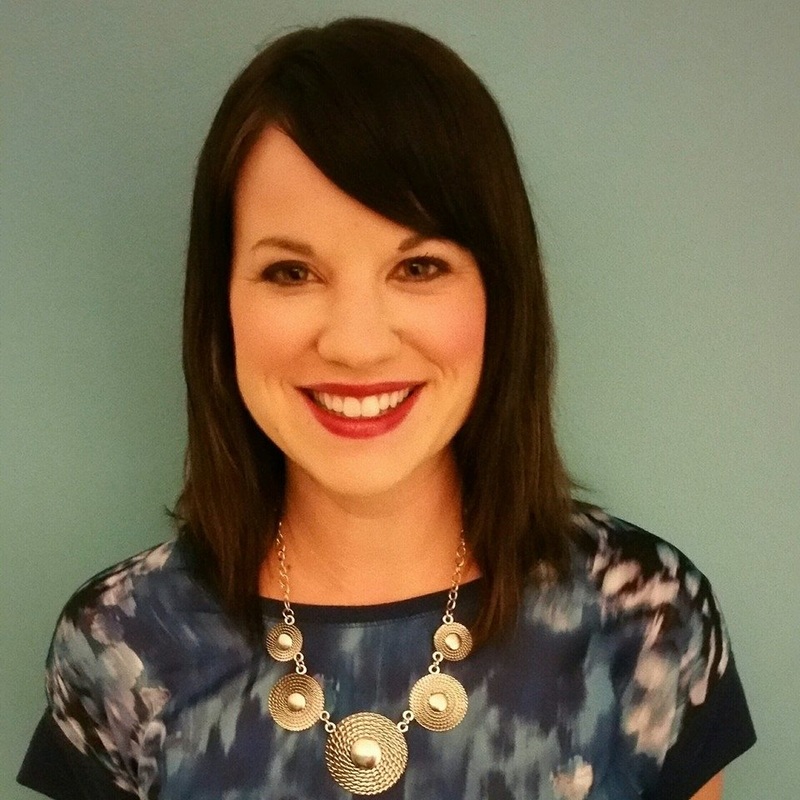


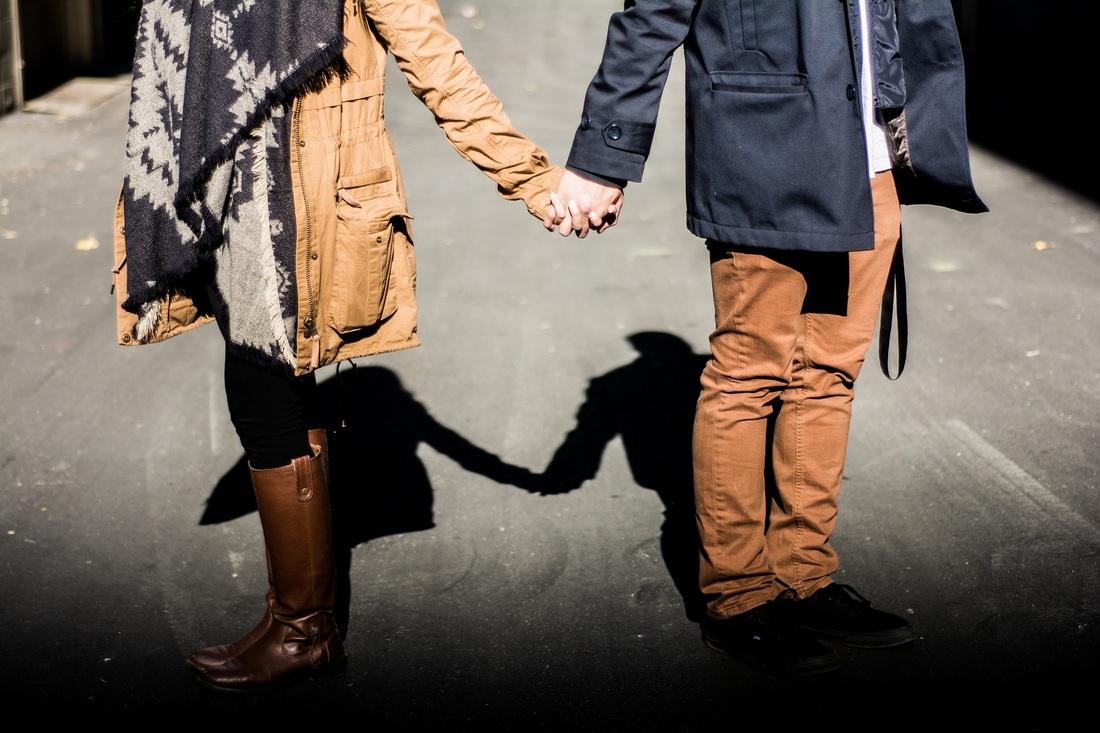













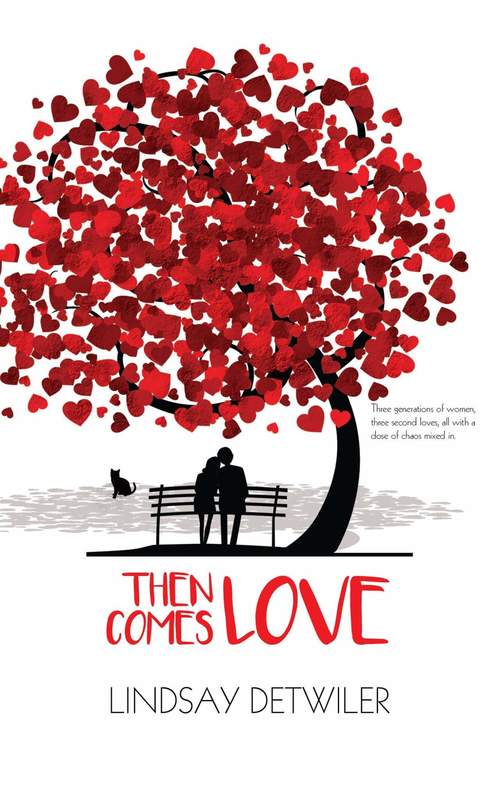

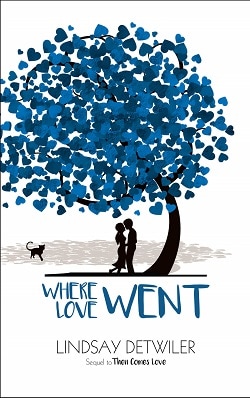
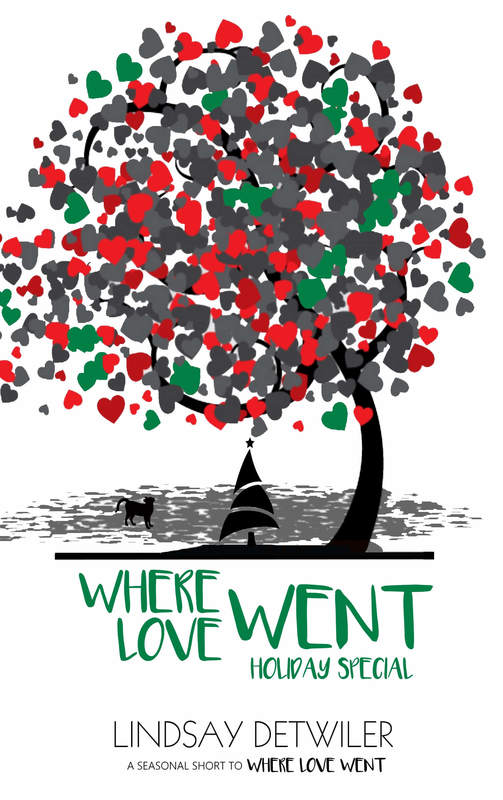
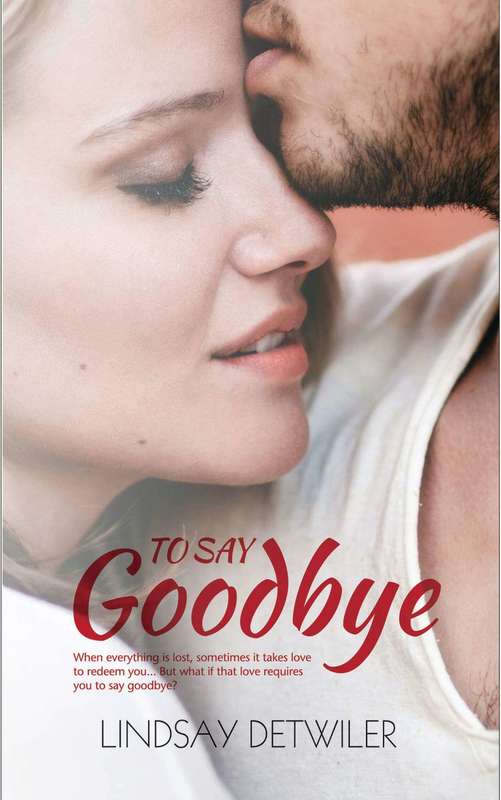
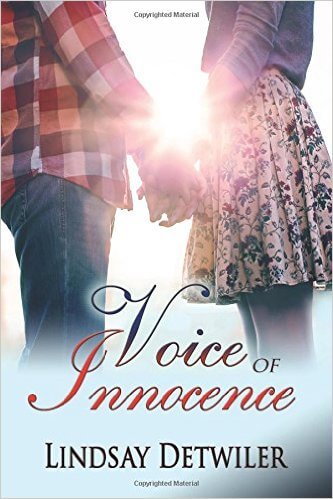
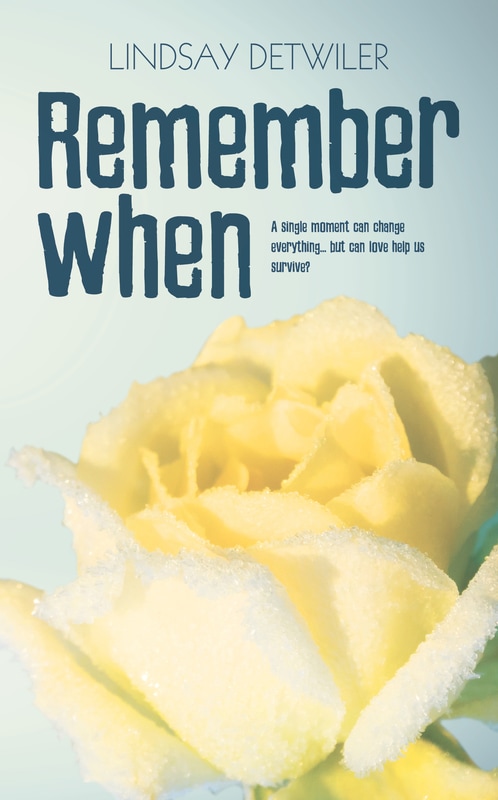
 RSS Feed
RSS Feed